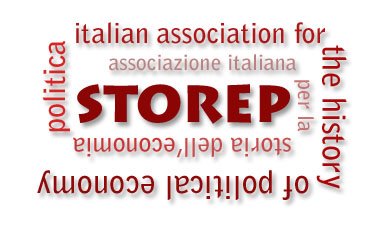Heterodox Economics Newsletter
www.heterodoxnews.com
Issue 78: March 3 , 2009
From the Editor
In the past couple of weeks, European academics and particularly European heterodox economists have addressed the question of state actions in reforming the nature of academic research and how quality research is identified and measured. First there is the statement from French academics—“La défense des revues de sciences humaines et
socials”. The statement says that the French Ministry of Research and Education would like to reform the higher education system in order to (1) classify scientific reviews according criteria defined by AERES and ERIH; (2) to use of this classification to rate the publications of the faculty of French universities and to give a grade to each faculty solely based on where they publish; (3) to classify faculty members as "good" or "bad" researcher in function of the grade and the
number of publications; and (4) to use of this grade to assign more or less time to research per faculty. Faculty with a low grade would be considered poor researcher and would be allocated more teaching and administrative tasks and less research time. The statement goes on to say that this is not good because peer evaluation of research is better than cold administrative evaluation and that the quality and
relevance of research is already accounted for by the editorial committee of reviews--if it is published it means that it is of quality, thus there is no need to add additional criteria. Finally the statement argues against the publish-or-perish mentality that the previous reform would institute. Quality is better than quantity and it may take a long time to write something worth publishing. (summary
translation provided by Éric Tymoigne).
Secondly, Enrico Bellino, Pierangelo Garegnani, Giorgio Lunghini, Sergio Parrinello,Luigi Pasinetti, Pierluigi Porta, Piero Tani, and Gianni Vaggi have written an open letter on the issue of the valuation of research in economics in Italy: “Lettera aperta sulla valutazione della ricerca nelle discipline economiche” (see attachment for the letter in Italian and for an English and German translation; and the web site of the letter is http://www.letteraapertavalutazionericerca.it/ ). Finally, I received the following e-mail from an Italian colleague:…in my university a new system of research evaluation is going to be approved. There is the risk that heterodox reviews will probably be undervalued. I remember that some time ago you mailed an e-mail about a sort of ranking of heterodox review and publications. Do you have any idea of that? Do you know if it is possible to find somewhere a sort of ranking among heterodox publications? The idea is to fight to insert some heterodox reviews in Group A and in Group B.
Each of these statements clearly raised, in their own way, the question of how heterodox economics in general and specifically our European colleagues should address the issue of assessing research in a non-pluralist mainstream environment. As noted in the previous Newsletter, Wolfram Elsner and I are planning a Workshop on this topic to take place at the University of Bremen, Germany, in June—particulars of the Workshop are given below. We are also planning propose a session for the Research Network Macroeconomics and Macroeconomic Policies (FMM) conference which takes place in Berlin on 30 31 October 2009, and a session for the EAEPE Conference whichtakes place in Amsterdam, The Netherlands on 6-8 November 2009. If you are interested in participating in the Workshop and in one or both of
the proposed conference sessions, contact Wolfram ( welsner@uni-bremen.de ) or myself ( leefs@umkc.edu ).
Fred Lee
In this issue:
Call for Papers
- Assessing Heterodox Economics in a European Context A Workshop
- International Journal of Pluralism and Economics Education
- EAEPE Conference 2009
- Association for Evolutionary Economics (AFEE)
- The Research Network Macroeconomics and Macroeconomic Policies
- Political Economy, Financialization and Discourse Theory
- Special Issue of Deleuze Studies on “Deleuze and Marx”
- International Conference of Political Economy: Adam Smith Today
- EAEPE Symposium 2009
- 6th Euroframe Conference on Economic Policy Issues in the European Union
- The Centre of Full Employment and Equity (CofFEE) Conference
- Workshop on Markets, Governance and Human Development
- The Global Food Crisis
Conferences, Seminars and Lectures
- Nancy Fraser at the Institute of Contemporary Arts
- The CICSE Lectures on Growth and Development
- ISET's European Interdisciplinary Spring 2009 Seminar Series
- After the Crash
- Power to the People?
- STOREP Workshop
- Left Forum Conference
- The Political Economy of Central Banking
- Public Debate
- Cooperation and Development Network (CDN)
Job Postings for Heterodox Economists
- The Women of Color Resource Center (WCRC)
- Living Standards/Labor Economist
Heterodox Conference Papers and Reports and Articles
- Sweetening the Pot: Implicit Subsidies to Corn Sweeteners and the
U.S. Obesity Epidemic
- Resources, Rules and International Political Economy: The Politics
of Development in the WTO
- Obama’s Job Creation Promise: A Modest Proposal to Guarantee That He
Meets and Exceeds Expectations
- After the Bust: The Outlook for Macroeconomics and Macroeconomic Policy
- Postwar Trends in Economic Well-Being in the United States, 19592004
- Macroeconomic Imbalances in the United States and Their Impact on
the International Financial System
- Financial Stability: The Significance and Distinctiveness of Islamic
Banking in Malaysia
- Long-Term Trends in the Levy Institute Measure of Economic
Well-Being (LIMEW), United States, 19592004
Heterodox Journals and Newsletters
- Challenge
- Feminist Economics
- International Review of Applied Economics
Heterodox Books and Book Series
- Money and Macrodynamics: Alfred Eichner and Post Keynesian Economics
- A History of Heterodox Economics: Challenging the Mainstream in the Twentieth Century
- Ontology and Economics
- "Equilibrium in Economics - Scope and Limits" Edited by Valeria Mosini
- Economics Versus Human Rights
- The Keynesian Multiplier
Argomenti
bandi
(52)
benvenuto
(1)
blog e forum
(24)
convegni
(285)
novità editoriali
(74)
premi
(3)
riviste
(163)
seminari
(59)
Storep attività
(80)
summerschool
(14)
